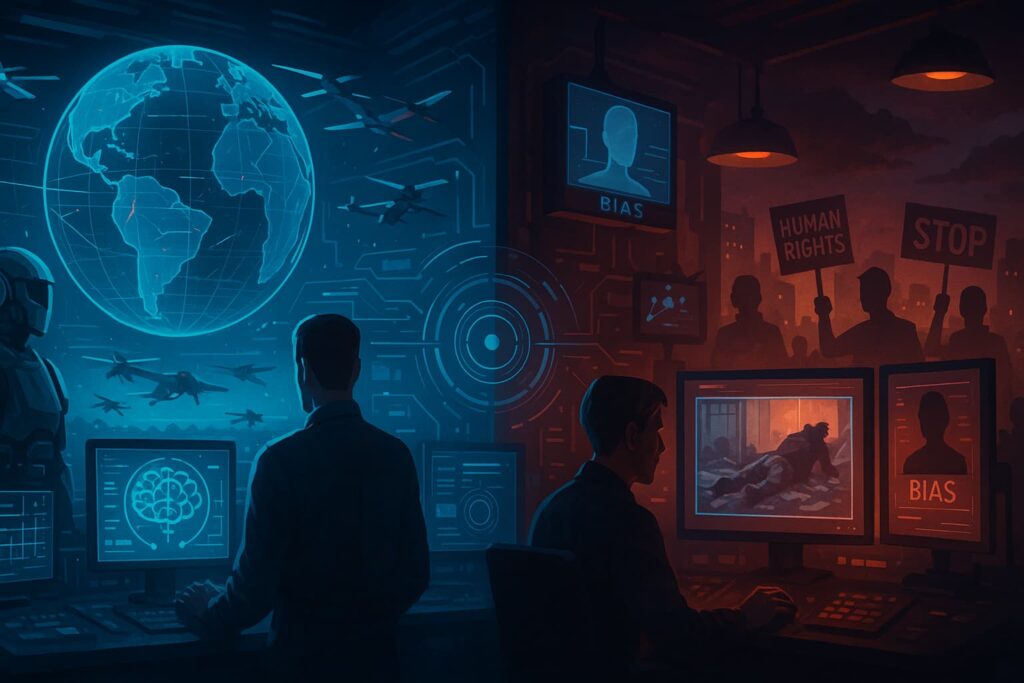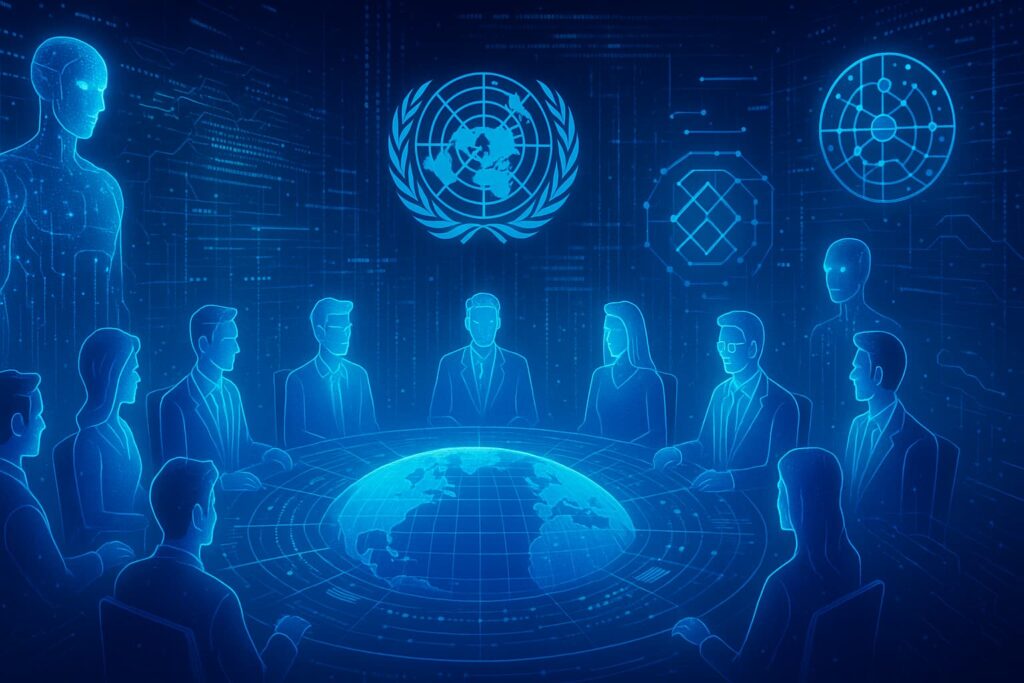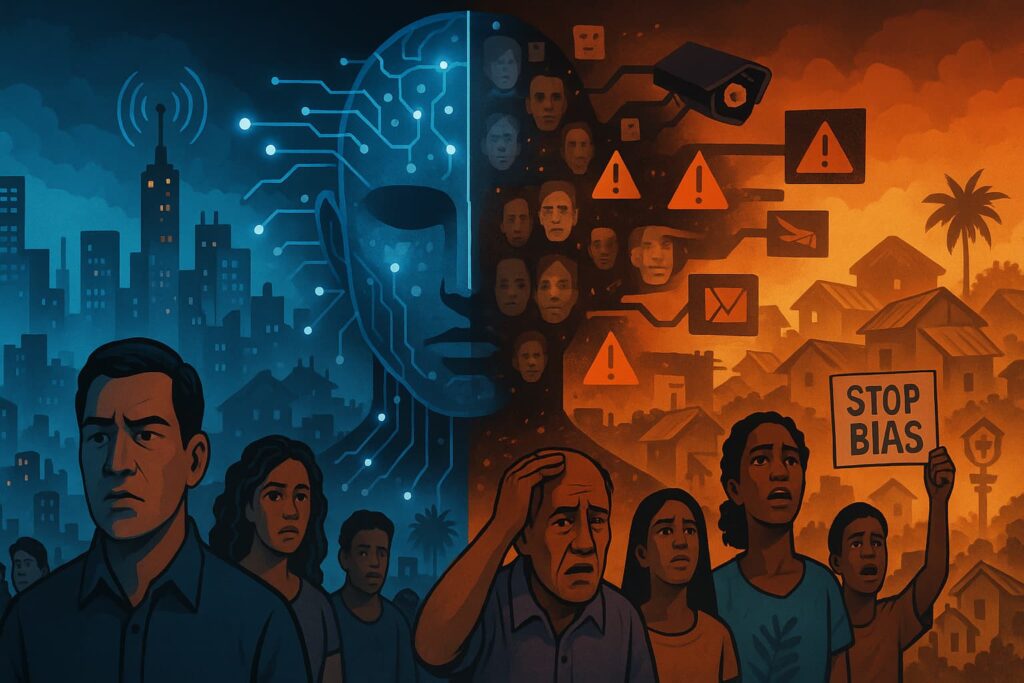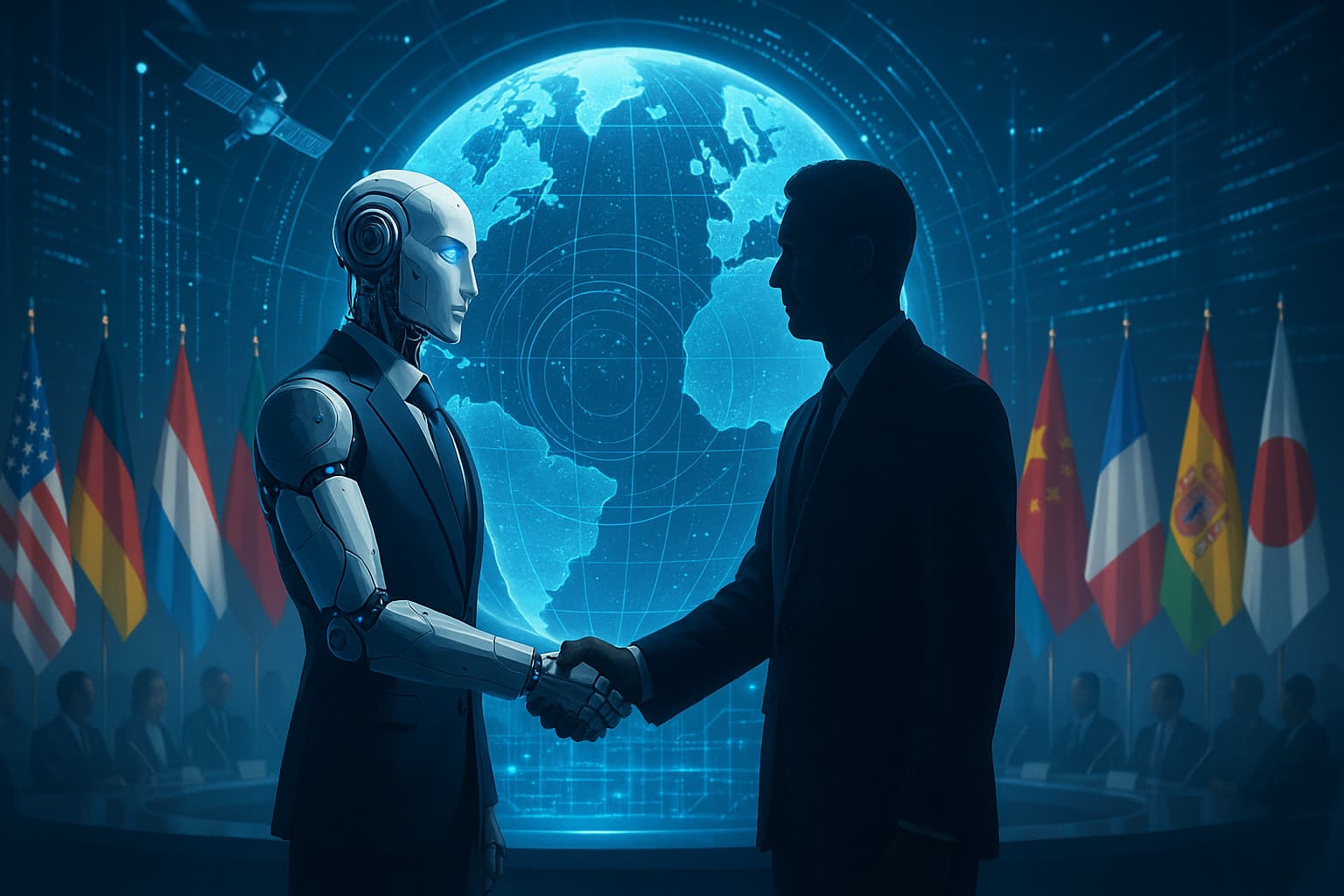In today’s world, everything is more connected and driven by data. AI in international relations has become a transformative force. It is reshaping several key areas, including diplomacy, global governance, defense, and cybersecurity. Artificial Intelligence is changing how states interact, cooperate, and compete globally. Geopolitical dynamics are constantly evolving. The integration of AI into foreign policy strategies marks a pivotal shift. This shift requires urgent attention, collaboration, and regulation.
AI in Diplomacy: Towards Smart Negotiations and Predictive Engagements

AI is revolutionizing diplomacy. It has enhanced the decision-making processes. It also streamlines information analysis and enables predictive modeling. Diplomatic agencies can analyze vast amounts of unstructured data with the help of AI-driven tools like natural language processing (NLP) and machine learning algorithms. This data includes news, speeches, and social media content. With these tools, agencies can identify emerging geopolitical risks, sentiment trends, and public opinion across borders.
Digital diplomacy has seen the rise of AI-driven chatbots and virtual assistants. These tools enable embassies and consulates to offer 24/7 support to citizens abroad. Additionally, sentiment analysis tools help diplomats tailor their messaging strategies. This makes their communication more effective with foreign audiences. Such techniques are increasingly used in public diplomacy and soft power campaigns.
A report by the Council on Foreign Relations highlights using predictive AI tools. These tools are already employed by the U.S. State Department. They help forecast potential unrest and political instability. This allows diplomats to engage proactively rather than reactively.
AI in Defense and Security: Strategic Advantage and Ethical Dilemmas

The military applications of AI are some of the most impactful aspects of The Role of AI in International Relations. They are also among the most controversial. AI-powered surveillance systems, autonomous drones, and cyber defense algorithms are examples of these applications. These technologies give nations a strategic edge in modern warfare. However, these advancements also raise ethical questions and security dilemmas.
Autonomous weapons, often called “killer robots,” have sparked global debates about The Role of AI in International Relations. These debates focus on accountability and the risk of accidental escalation. There is currently no international consensus on regulating these technologies. This lack of agreement poses a significant risk to global stability. In 2023, the United Nations Group of Governmental Experts (GGE) renewed calls for action. They urged the creation of legally binding agreements to regulate lethal autonomous weapons systems (LAWS). The GGE emphasized the urgent need for transparency and multilateral cooperation.
According to a detailed brief from the Brookings Institution, AI is now central to national security frameworks. This is especially true in countries like China, the U.S., and Russia. In these countries, AI is integrated into surveillance, logistics, and cyber warfare capabilities.
Geopolitical Competition: The New AI Arms Race

The strategic competition over AI supremacy mirrors the Cold War-era arms race. However, the stakes are higher because AI has a dual-use nature—it serves both civilian and military purposes. Countries are investing heavily in AI research and development (R&D). Their goal is to strengthen national influence, economic leadership, and defense capabilities.
China’s Next Generation AI Development Plan and the U.S.’s National AI Initiative Act underscore the race to dominate AI innovation. Meanwhile, the European Union emphasizes ethical AI through its AI Act, aiming to become a global standard-setter.
This divergence in AI governance philosophies poses a serious risk. It could lead to a fragmented global AI landscape. Without interoperable norms and shared ethical standards, mistrust may grow. Such mistrust and miscalculations could worsen existing geopolitical tensions. Insights from the AI and Global Governance Project – Stimson Center stress a key point. There is a strong need to build international frameworks for AI governance. These frameworks should aim to harmonize global efforts while respecting cultural and political differences.
AI in Cyber Diplomacy and Global Governance

Cybersecurity is a cornerstone of modern international relations. AI plays a dual role in this space as it can act as both a shield and a potential weapon. On one hand, AI is used to detect security breaches. It also helps automate incident responses and model potential cyber threats. On the other hand, AI can be weaponized. It may be used to exploit vulnerabilities or to create convincing disinformation campaigns.
Multilateral institutions are playing a key role in AI governance. Organizations like the United Nations Institute for Disarmament Research (UNIDIR) and the OECD are leading the way. They are spearheading efforts to establish AI norms. They are also working to build digital trust frameworks.
These include guidelines for responsible AI development, data governance, and cross-border digital rights. In addition, AI’s role in managing global crises such as pandemics or climate change is also gaining traction. During COVID-19, AI was instrumental in predicting outbreak patterns and optimizing vaccine distribution. These AI capabilities suggest that AI can enhance international cooperation in addressing transnational challenges.
There is a growing reliance on AI-powered tools. As this reliance increases, digital threats are also evolving. In this environment, it becomes crucial to understand how to identify and prevent online financial scams. This knowledge is essential to staying safe as technology continues to advance.
Risks, Bias, and the Global South

While AI promises efficiency and foresight, it also inherits the biases and inequalities of its creators. Algorithms trained on skewed data can perpetuate discrimination, misinformation, and geopolitical misrepresentation.
For developing countries and the Global South, the AI revolution presents both opportunities and risks. A lack of infrastructure, regulatory frameworks, and a skilled workforce can widen the digital divide. This may marginalize some nations from the AI-driven global discourse. To prevent this, inclusive capacity-building must be prioritized. Knowledge sharing and equitable access to AI technologies are also essential.
The World Economic Forum emphasizes this need. It calls for inclusive AI policies that involve stakeholders from low- and middle-income countries. These stakeholders should have a role in setting the global AI agenda. Exploring trends like the future of wearable technology in 2025 shows what inclusive innovation can look like. Such trends offer a glimpse of how technology can become more accessible and impactful around the world.
Policy Recommendations and the Road Ahead

To responsibly integrate AI into international relations, coordinated efforts are essential:
- Global Governance: It is essential in the age of military AI. There is a need to establish multilateral frameworks. These frameworks should regulate the use of military AI applications. They should also ensure transparency in the development and deployment of these technologies.
- AI Ethics Diplomacy: Promote cross-cultural dialogues to harmonize ethical standards and build trust.
- Public-Private Collaboration: Encourage tech companies to align AI innovation with international peace and security goals. Technology should support global collaboration, not just commercial interests. For example, features from the best productivity apps for remote workers in 2025 show how innovation can be designed to promote connection and cooperation worldwide.
- Digital Literacy and Inclusion: Support education and training in AI among diplomats, policymakers, and underserved regions.
- AI Treaties and Norms: Strengthen international law to address algorithmic accountability, data sovereignty, and autonomous systems.
Diplomacy Meets the Digital Frontier

Conclusion: AI is not just a technological tool. It has become a geopolitical actor in its own right. Its growing influence on international relations is undeniable. This influence calls for a major shift in how we approach diplomacy, governance, and ethical cooperation. As nations navigate this new digital frontier, their choices matter. Decisions made today will shape the future architecture of global peace, power, and partnership. Strategic foresight, inclusive dialogue, and responsible innovation are no longer optional. They are now imperative for shaping a stable and fair global future. Understanding complex investment landscapes is also essential. For example, exploring topics like should you invest in Bitcoin now? A comprehensive analysis shows how technology and economics are deeply interconnected. This connection plays a critical role in global policymaking.


Leave a Reply